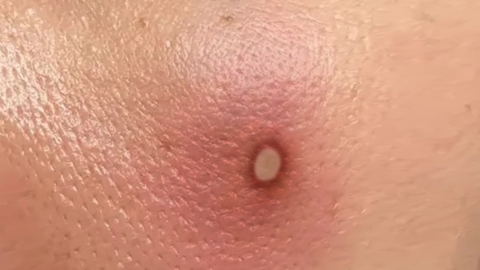What should I do about a boil on my buttocks?
Boils on the buttocks usually refer to furuncles. Generally, the occurrence of furuncles in this area may be caused by local friction, excessive sweating, follicular occlusion, bacterial infection, or secondary infection of sebaceous cysts. Patients can visit a正规 hospital for general treatment or medication to improve the condition. Detailed explanations are as follows:
1. Local Friction
Prolonged sitting or wearing tight clothing may repeatedly irritate the skin on the buttocks, damaging the skin barrier and making it prone to furuncles. Avoid sitting for long periods, get up and move around periodically; choose loose, breathable cotton clothing to reduce local friction.
2. Excessive Sweating
During hot weather or after intense exercise, excessive sweating on the buttocks may occur. If sweat cannot evaporate promptly, it creates a moist environment that increases the risk of developing furuncles. Clean and dry the buttocks promptly after exercising; maintain local dryness. During hot weather, reduce intense physical activity and wear sweat-absorbing, breathable clothing.
3. Follicular Occlusion
The follicles on the buttocks may become blocked by oil and dirt, preventing normal sebum drainage, which can lead to bacterial growth and the formation of furuncles. Pay attention to keeping the buttocks clean and wash daily with warm water; avoid frequent use of harsh cleansing products to prevent damage to the skin barrier.

4. Bacterial Infection
Bacteria such as Staphylococcus aureus on the skin surface may invade the hair follicles and surrounding tissues, causing infection and resulting in redness, swelling, and pain associated with furuncles. Patients should use medications such as mupirocin ointment, cefaclor capsules, or amoxicillin capsules under a doctor's guidance.
5. Secondary Infection of Sebaceous Cysts
When a sebaceous gland duct becomes blocked and forms a cyst, secondary bacterial infection may occur, presenting with furuncle-like symptoms, possibly accompanied by pus formation and increased pain. Prompt medical attention is necessary. Under a doctor's guidance, medications such as fusidic acid cream, clindamycin hydrochloride capsules, or roxithromycin dispersible tablets may be used. Surgical drainage may be required if necessary.
In daily life, maintain cleanliness and dryness of the buttocks and avoid squeezing; follow a light diet and reduce the intake of spicy and irritating foods; change clothing regularly, use breathable seating, and lower the likelihood of developing furuncles.







